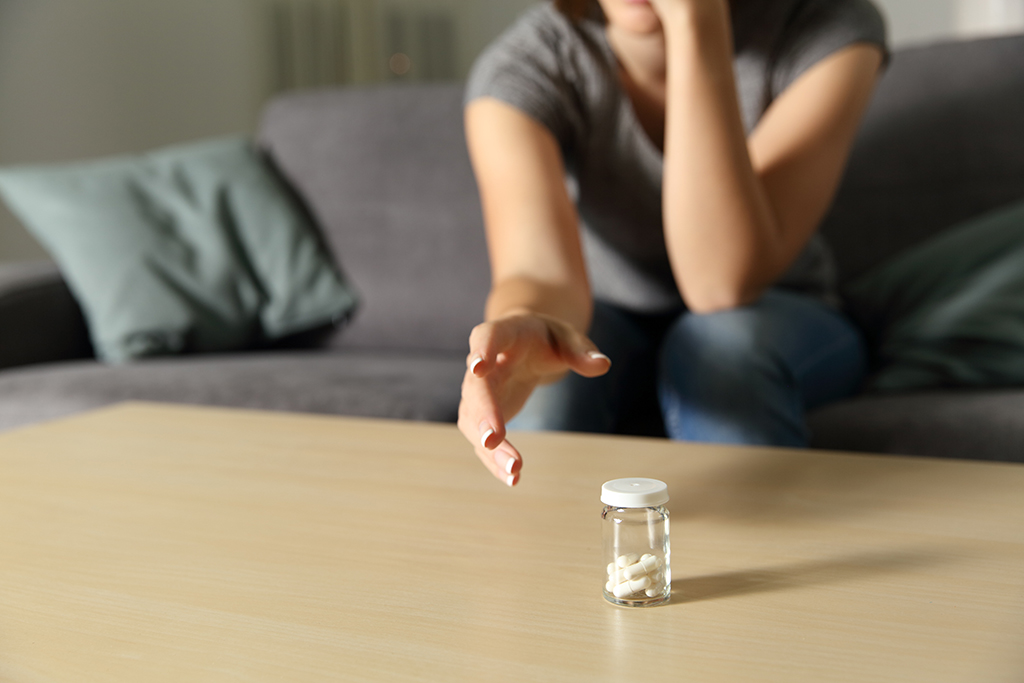
Reviewed By: Barbara Rexer, DSW, LCSW, LCADC, CCS, ICCS, DRCC
Effexor withdrawal can cause a number of side effects, from nausea to strange electric sensations called "brain jolts." Here's what you need to know.
Table Of Contents
Effexor, also known as venlafaxine, is a prescription drug used to treat major depression and anxiety disorders. A selective serotonin and norepinephrine reuptake inhibitor (SNRI), the drug helps balance the chemicals in the human brain that cause depression. Because of the drug’s profound impact on the brain’s chemistry, stopping the medication can lead to Effexor withdrawal, causing symptoms like nausea, vomiting and mood swings. If you have been prescribed the drug, here’s what you need to know.
Understanding Effexor Withdrawal
When you stop taking antidepressants like Effexor, Paxil or similar drugs, you may develop a condition that doctors call antidepressant discontinuation syndrome. This condition occurs in about 20 percent of patients who have taken antidepressant medication for at least six weeks and then abruptly stop. In the case of Effexor, withdrawal symptoms may include the following:
- Anxiety
- Insomnia and nightmares
- Fatigue
- Dizziness and nausea
- Vomiting
- Vertigo
- Mood swings and depression
- Flu-like symptoms
- Muscle spasms and electric shock sensations
- General restlessness
- Headache
Any time someone stops taking an antidepressant, the sudden change impacts the chemical makeup of the brain. For this reason, in some cases antidepressant discontinuation syndrome may lead to mania or a psychotic break.
Cognitive Effects of Coming Down
Because Effexor withdrawal can also cause some disorientation, doctors recommend that patients do not operate heavy machinery or vehicles when coming off the medication. Discontinuing Effexor may also have the following cognitive effects:
- Cataplexy
- Confusion
- Difficulty with focus
- Psychosis
- Short-lived narcolepsy
- Worsening depression or anxiety
If you experience these rare, but serious symptoms while going through withdrawal, contact medical support or emergency services right away:
- Waves of delirium
- Suicidal thoughts and feelings
- Mania or psychosis
Symptoms from Effexor withdrawal develop quickly and can be relieved almost immediately by taking a dose of the medication. If you want to stop taking the drug altogether, ask your doctor to help you develop a plan to taper your use.
Dangers of Mixing Effexor With Drugs and Alcohol
Mixing drugs and alcohol with Effexor can increase your risk of side effects and complicate your withdrawal period. It is therefore recommended that you avoid the use of alcohol while on Effexor, and while you come off the drug. Not only does taking Effexor with alcohol increase the risk of overdose, but it can also lead to side effects such as dizziness, drowsiness, impaired judgement and trouble concentrating.
Some other-the-counter and prescription medications may interact with Effexor poorly as well. Consult a doctor before taking any of the following:
- Advil
- Aleve
- Aspirin
- Celebrex
- Motrin
- Any non-steroidal anti-inflammatory NSAID
Any new or worsening symptoms should be reported to your healthcare provider as soon as possible.
Effexor Withdrawal Timeline
Studies show that patients can begin feeling withdrawal symptoms just hours after missing a dose. Although not typically medically serious, these symptoms can be quite uncomfortable. Some patients report feeling akin to an electric shock, or a “brain shiver” when late taking their medication. No treatment currently exists for these jolt-like or “popping” sensations, which can affect up to 78% of people who take the drug.
Over time, patients experience increasingly more symptoms, which can persist for weeks. Moreover, many patients report a return of their depression, sometimes within 24 hours of stopping their Effexor medication.
Need support?
Call us at 855-430-9426 to speak with a recovery specialist.
Withdrawal Symptom Treatment
Coming off Effexor can have profound effects on the body and mind. Thankfully, there are a few things you can do to make the transition easier.
Firstly, work directly with your doctor. Studies show that patients who experienced the worst symptoms were those who abruptly stopped their medication without a doctor’s care. Make an appointment to discuss the potential benefits of discontinuing Effexor and the potential short-term consequences. Your healthcare provider is who can advise you on the right way to taper for minimum side effects.
Secondly, go slow. Most doctors recommend a gradual reduction of dosage over 7 to 10 days. Although you may still experience side effects, you can mitigate the most uncomfortable. Your doctor may also be able to recommend over-the-counter medications for some side effects, such as flu-like symptoms and nausea.
Finally, get support. Since it’s hard to notice small changes in your own behavior, ask the people who know you best to tell you if they notice mood swings or other red flags as you come off your medication. Keep in close touch with your doctors and follow up if you get feedback from friends and family that you don’t seem like yourself.
At Home Treatments
Although your healthcare provider is the best person to help you treat withdrawal symptoms, you can also help yourself with a few preparations.
Get regular exercise, eat healthy foods, and prioritize sleep. Studies show that the body sees drug withdrawal as a stressor. Simple self-care actions can therefore have a positive impact on how your body handles withdrawal. Incorporating better habits into your lifestyle can help greatly.
References:
https://pubmed.ncbi.nlm.nih.gov/28976215/
https://www.aafp.org/afp/2006/0801/p449.html
https://www.ncbi.nlm.nih.gov/pmc/articles/PMC4321719/
https://pubmed.ncbi.nlm.nih.gov/21448114/
Have questions about addiction?
Chat with one of our recovery specialists now.

Written By: Sprout Editorial Team
The Sprout Health Group editorial team is passionate about addiction treatment, recovery and mental health issues. Every article is expert-reviewed.


